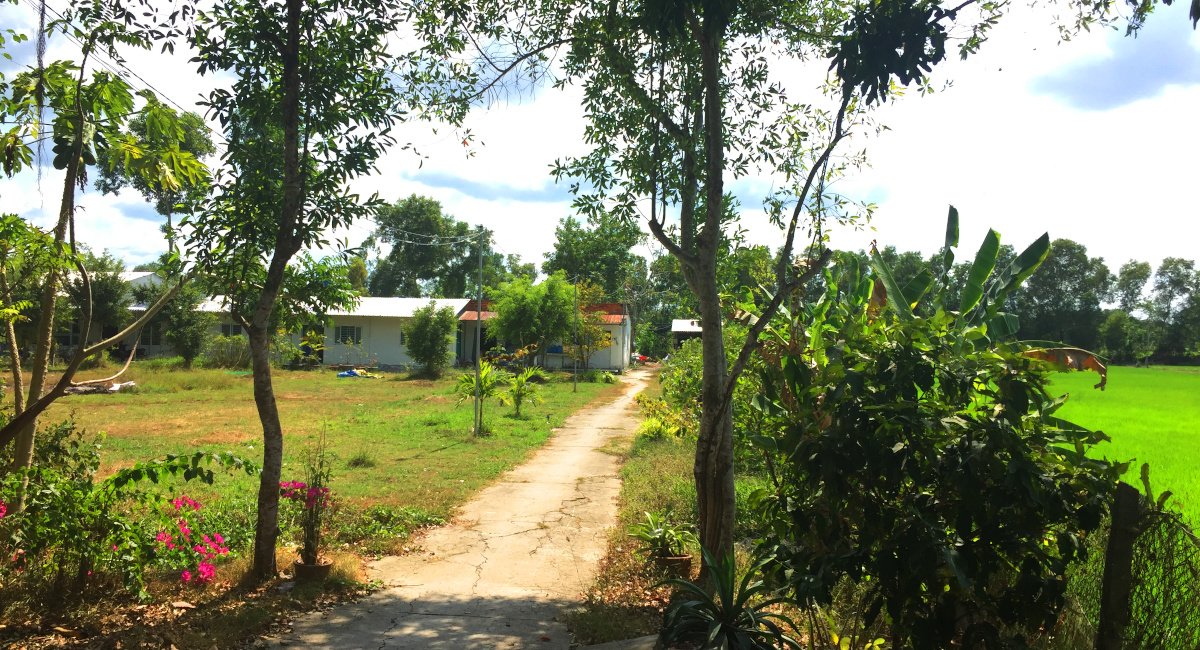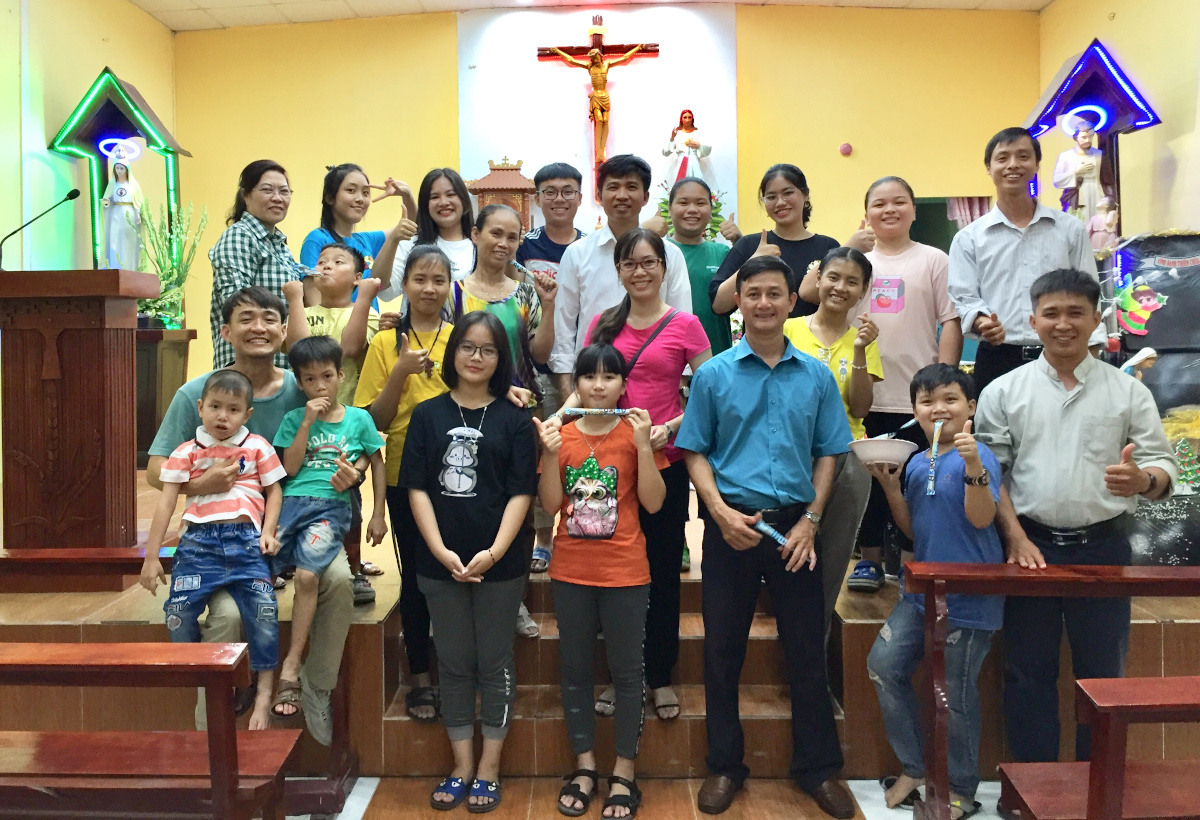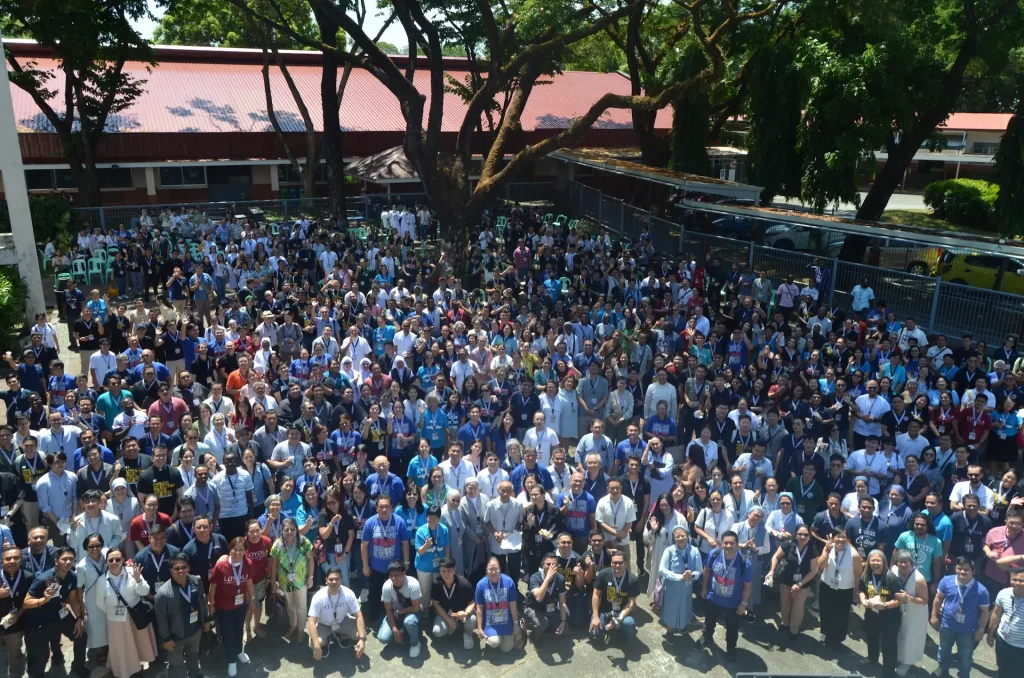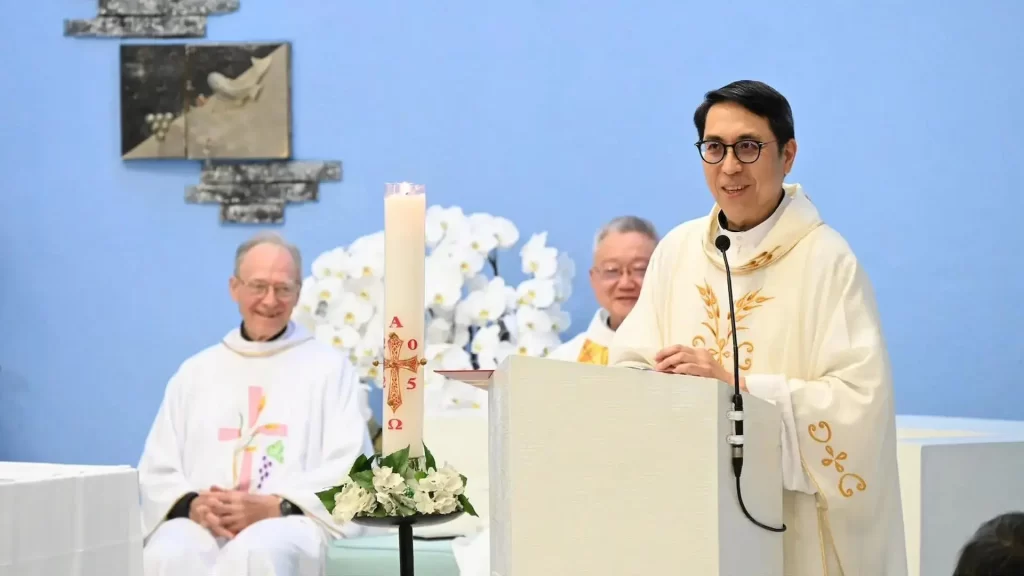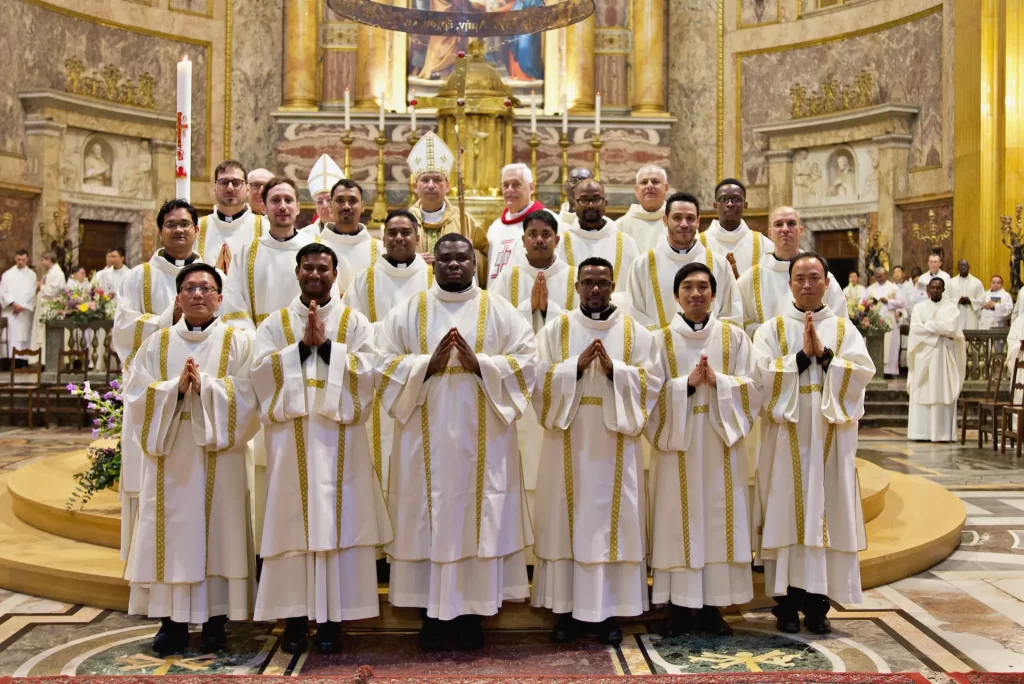Vietnam is a very beautiful country, not only because of its natural scenery but also for its people. I had never actually thought of going to Vietnam until I moved to Arrupe International Residence for my theological studies. Frankly speaking, throughout my formation as a Jesuit, Cambodia and the Philippines were the only two places I considered home. However, this Christmas break, I added Vietnam to my list of home.
Little is known about the Society of Jesus in Vietnam despite many of her men being missioned around the globe. Partly, this is due to the communist control of the country, which makes it hard for the Society on this side of the world to open herself to the rest. Given this context, the image that came to my mind at the mere mention of Vietnam were eyes that spied on every individual; but reality proved me very wrong. The Church is much alive, notwithstanding the communist control of the country. The trip widened my view about the ministries of the Society of Jesus in Vietnam. What were palpable to me were their engagement with the youth, their care for local parishes, and their simple journey with the poor. Above and beyond, one formative experience buckled my mind and helped me view simplicity from another perspective: as a source of joy in service of others.
It was not until I came to reflect on the meaning of simplicity that I would see my two-year regency in Cambodia as a learning experience. I was assigned to Xavier Jesuit School, which at first brought me joy because I was so passionate about teaching. Yet, instead of being a teacher, I was assigned to work in the school’s administration office, which led me into complete desolation. In fact, I thought that if I had left the school, it would have done me good. The experience haunted me beyond my years in Regency until I pondered on it in Vietnam. The simplicity I found there made me ask how the Vietnamese Jesuits could help me see my desolation experience in a new way.
I remember a story told by a senior Jesuit about Fr Pedro Arrupe. When he was still Superior General of the Jesuits, he once told an American Jesuit passing by Rome to Africa for his urban poor trial how the Society had to pay a lot for a Jesuit to experience poverty! I don’t know how true this story is, but the irony of the message is quite sobering.
Many times, I have fallen into this false sense of poverty. How many times have I, in my quest for simplicity, become a burden to others around me? Why can’t I be content with what is offered? The words of Fr Son, a Jesuit in Minh Hao in the Mekong Delta, ring in my ears: “We eat what the parishioners offer.” This is what I call authentic simplicity; they are simply grateful for whatever that is offered – little or abundant.
While I could imagine myself sitting and complaining about the suppression and control of the government, the Vietnamese Jesuits, in their simplicity and authenticity, seek creative ways of serving others in the Province. Doubtless it made me see my tough years in Regency, which ended up in endless complaints and resentment, from a different angle. Undeniably, every one of us desires happiness and consolation; as much as we can, we try to avoid pain and desolation. But life is not a bed of roses and things don’t often turn out the way we want them to, just like how I imagined my Regency would be. In trying to make work simple in my own way, I was actually complicating things.
I could imagine Fr Arrupe telling me: “You don’t know how for the sake of simplicity you have complicated what is given.” How absolutely right he would be! Definitely, I am not trying to endorse a spirit of “Bahala na ang Diyos!” a Filipino translation of “Leave it up to God!” because this attitude also has its pitfall: it promotes a spirit of passivity. Neither do I intend to discourage any Jesuit from practising the spirit of poverty or simplicity; on the contrary, what I mean is to approach poverty and simplicity creatively given limitations under certain circumstances. That is, as Fr Son, would say, to eat what is offered; it is to be grateful for what is given – though it be abundant or little.
Poverty can be experienced at home, so why do I bother paying thousands of dollars seeking it somewhere else? When simplicity can be found at my fingertips, why do I complicate life and look for it elsewhere? Let us eat what is offered. Let us be grateful for what is given.

